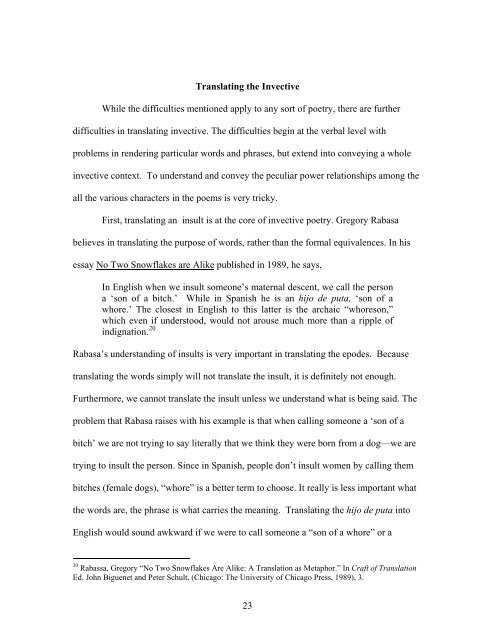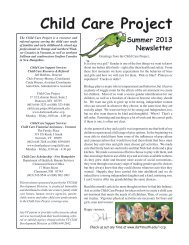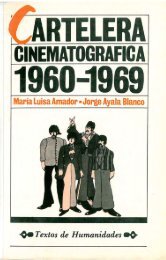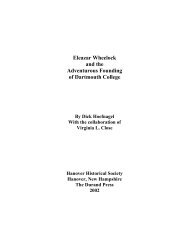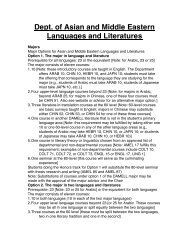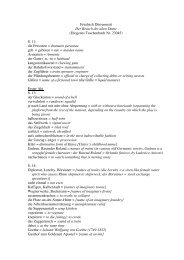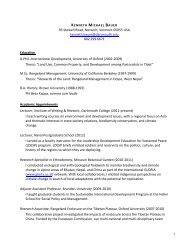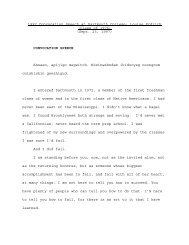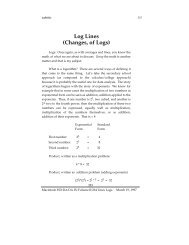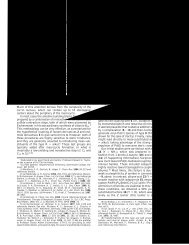A Log Cabin Out of Stone: - Dartmouth College
A Log Cabin Out of Stone: - Dartmouth College
A Log Cabin Out of Stone: - Dartmouth College
Create successful ePaper yourself
Turn your PDF publications into a flip-book with our unique Google optimized e-Paper software.
Translating the Invective<br />
While the difficulties mentioned apply to any sort <strong>of</strong> poetry, there are further<br />
difficulties in translating invective. The difficulties begin at the verbal level with<br />
problems in rendering particular words and phrases, but extend into conveying a whole<br />
invective context. To understand and convey the peculiar power relationships among the<br />
all the various characters in the poems is very tricky.<br />
First, translating an insult is at the core <strong>of</strong> invective poetry. Gregory Rabasa<br />
believes in translating the purpose <strong>of</strong> words, rather than the formal equivalences. In his<br />
essay No Two Snowflakes are Alike published in 1989, he says,<br />
In English when we insult someone’s maternal descent, we call the person<br />
a ‘son <strong>of</strong> a bitch.’ While in Spanish he is an hijo de puta, ‘son <strong>of</strong> a<br />
whore.’ The closest in English to this latter is the archaic “whoreson,”<br />
which even if understood, would not arouse much more than a ripple <strong>of</strong><br />
indignation. 20<br />
Rabasa’s understanding <strong>of</strong> insults is very important in translating the epodes. Because<br />
translating the words simply will not translate the insult, it is definitely not enough.<br />
Furthermore, we cannot translate the insult unless we understand what is being said. The<br />
problem that Rabasa raises with his example is that when calling someone a ‘son <strong>of</strong> a<br />
bitch’ we are not trying to say literally that we think they were born from a dog—we are<br />
trying to insult the person. Since in Spanish, people don’t insult women by calling them<br />
bitches (female dogs), “whore” is a better term to choose. It really is less important what<br />
the words are, the phrase is what carries the meaning. Translating the hijo de puta into<br />
English would sound awkward if we were to call someone a “son <strong>of</strong> a whore” or a<br />
20 Rabassa, Gregory “No Two Snowflakes Are Alike: A Translation as Metaphor.” In Craft <strong>of</strong> Translation<br />
Ed. John Biguenet and Peter Schult, (Chicago: The University <strong>of</strong> Chicago Press, 1989), 3.<br />
23


